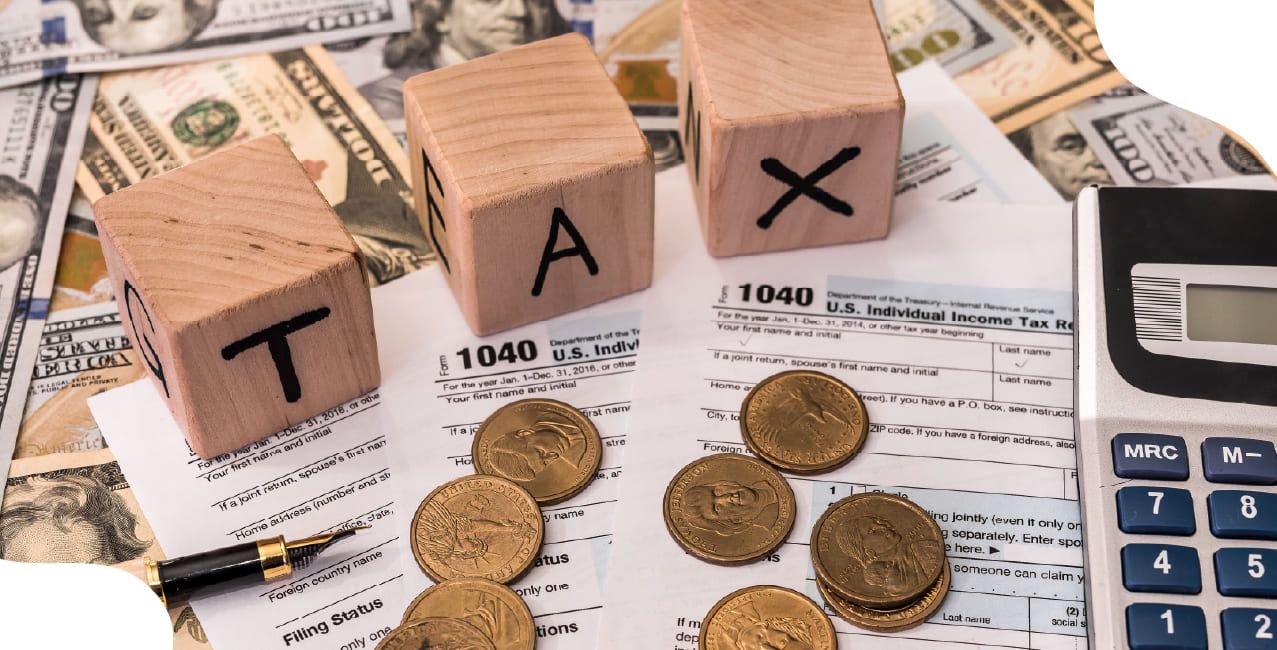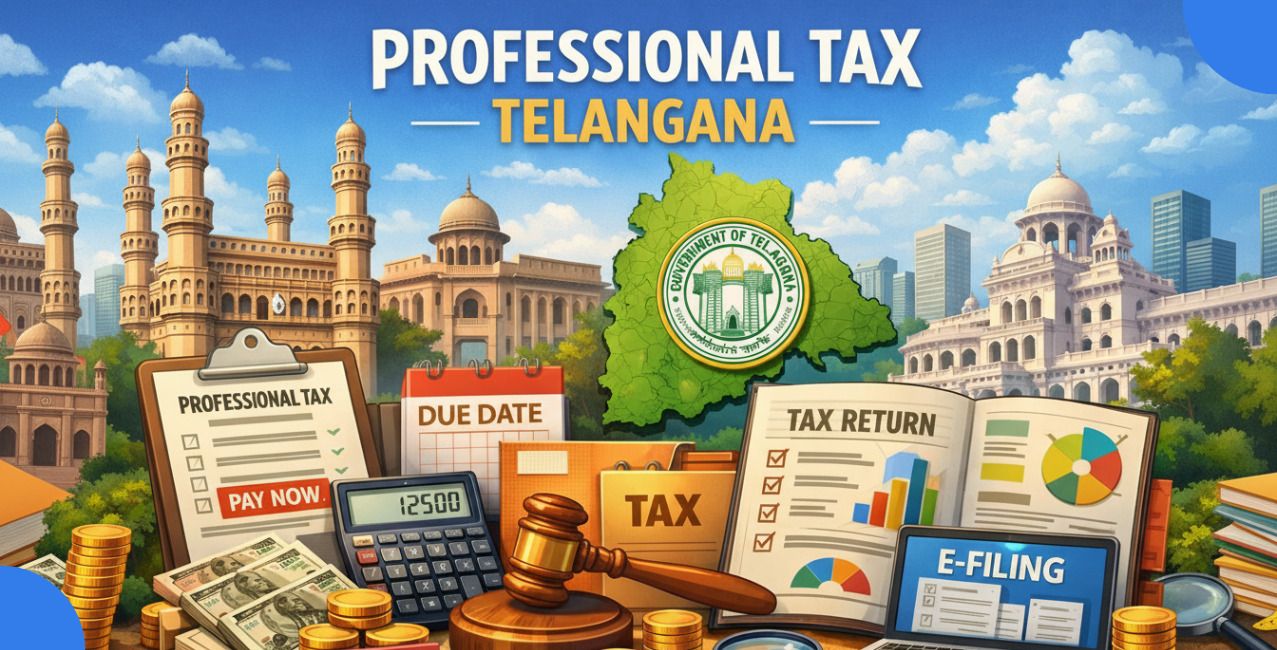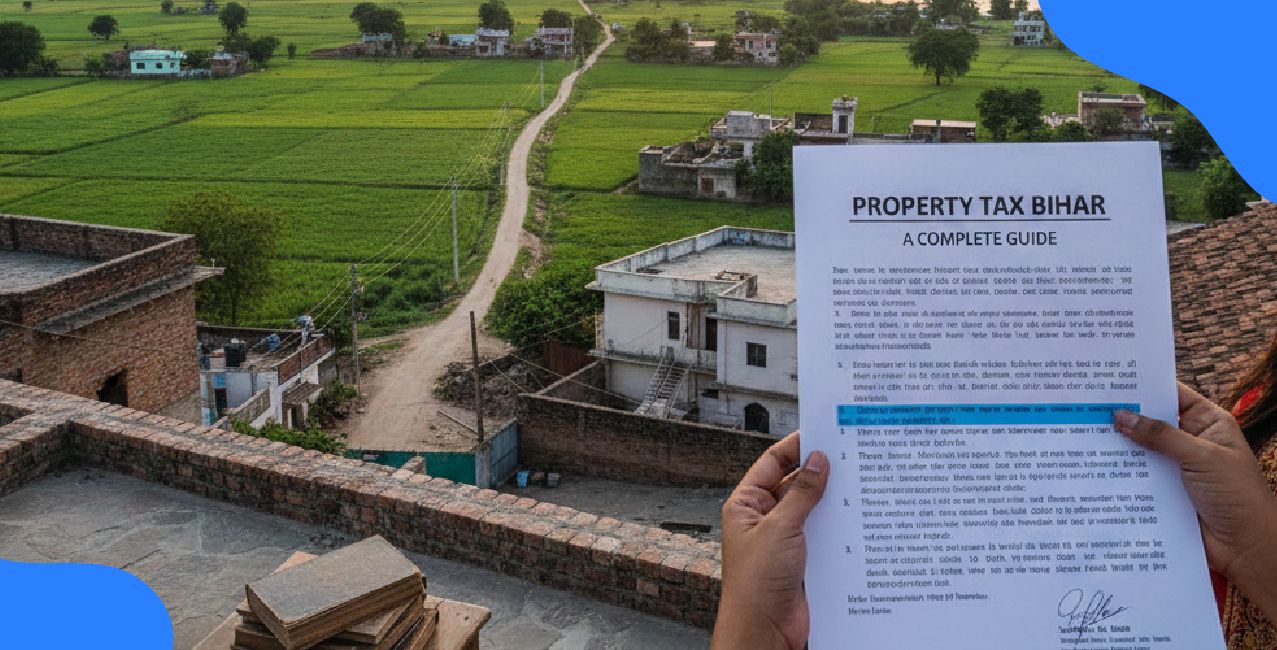Section 80GG of Income Tax Act – Rent Deduction & Benefits Explained

Check Your Loan Eligibility Now
By continuing, you agree to LoansJagat's Credit Report Terms of Use, Terms and Conditions, Privacy Policy, and authorize contact via Call, SMS, Email, or WhatsApp
Key Highlights
- Section 80GG helps taxpayers (resident individuals) who pay rent but do not receive HRA to claim a limited (₹60,000 per annum maximum) deduction.
- The deduction is the least of: ₹5,000/month, 25% of adjusted income, or rent paid minus 10% of income.
- orm 10BA, rent receipts and landlord PAN (if annual rent > ₹1,00,000) are essential to support any claim.
Under Section 80GG of Income Tax Act, people who pay rent are provided with tax benefits. This rule does not apply to those who get House Rent Allowance (HRA) from their employers.
For example, Asha has a total income of ₹6,00,000 and pays ₹12,000/month (₹1,44,000/year) rent. Under Section 80GG, her deduction is ₹60,000.
Let’s refer to the table to know how it was calculated
Out of the 3 values, the least is selected and deducted. In Asha’s case, ₹60,000 is deducted under Section 80GG. This was just an overview of Section 80GG of Income Tax Act. Let’s have a detailed knowledge in this blog.
Section 80GG of Income Tax Act: Introduction
Section 80GG of Income Tax Act lets individuals (and HUFs) who do not receive HRA claim a deduction for rent paid. To claim the Section 80GG benefit, the individual must be:
- Resident individuals,
- Must not get HRA
- His family (spouse/minor child) or HUF does not own a self-occupied house at the place of residence or employment. Non-residents are generally not eligible
To calculate the claim value, the least of the 3 values is selected:
(a) ₹5,000 per month (₹60,000 p.a.),
(b) 25% of total adjusted income, or
(c) actual rent paid minus 10% of total income
You must file Form 10BA (rent declaration) before claiming the deduction in your ITR. Do not throw away your rent receipts/agreements and landlord PAN (mandatory if annual rent > ₹1,00,000).
Importance of Section 80GG of Income Tax Act
Section 80GG of Income Tax Act was considered important because it supported those who did not get any HRA but still had to pay rent. Many small business owners and middle-income earners found it helpful during tax filing.
For instance, Ramesh, who worked at a small local shop, earned ₹4,80,000 in a year. He paid ₹7,500 in monthly rent, which came to ₹90,000 for the year. Since his salary package did not include HRA, Ramesh was eligible to claim relief under Section 80GG of Income Tax Act. After applying the rule, ₹30,000 was allowed as a deduction from his taxable income.
The section gave such relief in many ways:
Because of this section, many people like Ramesh were not overburdened with taxes. It acted like a friend to the taxpayer. As said in the movie Chak De! India — “Sattar minute hain tumhare paas.” People were given a fair chance to reduce taxes if they acted smartly and on time.
Objectives of Section 80GG of Income Tax Act
The main goal of Section 80GG of Income Tax Act was to help people who paid rent but did not get any House Rent Allowance (HRA). This section was added so that rent payers could also save tax like others who received HRA.
Let us look at Nidhi's case. She worked as a freelance content writer and earned ₹6,00,000 in a year. She paid ₹10,000 every month as rent, but no HRA was given to her. Because of Section 80GG of Income Tax Act, she was allowed to reduce ₹60,000 from her income. This helped her save nearly ₹12,000 in taxes.
This section also made people follow the rules more easily. A simple form called Form 10BA was made, so everyone could show the rent details properly.
The three key objectives were:
- The rent burden was eased for those who did not get HRA.
- Homeownership was promoted slowly, as this relief helped people manage their living expenses better.
- Tax compliance was simplified through easy forms and rules.
Do you know that about 70% of salaried individuals who don’t receive House Rent Allowance (HRA) and pay rent are unaware of the Section 80GG deduction? That is why people need to know about their rights and claim with proper documents and procedure. , resulting in many missing out on eligible tax benefits.
TDS Rate Under Section 80GG of Income Tax Act
No TDS (Tax Deducted at Source) was separately deducted under this section. Income was taxed normally, after subtracting the deduction claimed under Section 80GG of Income Tax Act.
For example, Karan, who earned ₹5,50,000 per year and paid ₹8,000 in monthly rent, got ₹60,000 as a deduction under this section. His taxable income became ₹4,90,000. Then, the tax was calculated using the normal tax slabs. No special TDS was charged just because he claimed this rent deduction.
So, the tax system stayed simple. Only the final taxable amount was changed. All tax rules were the same for everyone.
Exemption Under Section 80GG of Income Tax Act
The amount a person could claim under Section 80GG of Income Tax Act was not the full rent paid. Only a part of it could be claimed, and that too based on these three conditions:
Let's understand this with Deepa’s case:
- She earned ₹7,20,000 per year
- Paid ₹12,000 in rent per month (₹1,44,000 per year)
Her deduction under Section 80GG of Income Tax Act would be the least of:
- ₹60,000 (₹5,000 x 12 months)
- ₹1,80,000 (25% of ₹7,20,000)
- ₹72,000 (Rent ₹1,44,000 – 10% of income ₹72,000)
So, the final allowed deduction = ₹60,000
This simple rule helped ensure fair tax benefits for all, especially for middle-income renters.
Due Date and Compliance Requirements of Section 80GG of Income Tax Act
To claim a deduction under Section 80GG of Income Tax Act, simple rules were given that had to be followed on time.
Firstly, Form 10BA was needed. It was a declaration form where details like rent paid, the name of the landlord, and the address were filled out. This form was submitted along with the Income Tax Return (ITR).
If the yearly rent was more than ₹1,00,000, the PAN number of the landlord was also needed. Rent receipts had to be saved, showing the amount paid, the landlord’s name and the rental period.
The return had to be filed before the due date every year. For example, for FY 2024–25, the due date was 31st July 2025 for individuals not requiring an audit.
As said in the movie Munnabhai MBBS, "Tension lene ka nahi, dene ka," — by following these simple rules, no tension was left during tax filing.
Practical Examples of Section 80GG of Income Tax Act
In each case above, the deduction allowed was the lowest among:
- ₹60,000 (₹5,000 per month)
- 25% of income
- Excess of rent paid over 10% of income
Conclusions of Section 80GG of Income Tax Act
Section 80GG gives tenants without HRA relief of up to ₹60,000 maximum. However, one just abides by the rules as per the section, like filing Form 10BA, keeping landlord details and proof of genuine rent. Claim accurately and keep receipts. If you fail to do so, you may not be allowed the allowance and face queries or penalties from tax authorities later.
Frequently Asked Questions
Can I claim 80GG if I pay rent to a close relative?
Yes, but payments must be genuine. Keep bank transfer records and receipts; the tax department may closely scrutinise related-party rent.
Does paying rent in cash disqualify my claim?
Cash payments do not automatically disqualify you, but digital/bank evidence is far stronger and reduces dispute risk.
If I co-pay rent with a friend, can I claim my share?
Yes. Claim only the portion you actually paid and retain receipts or a written split agreement showing your share.
I own a house in another city. Am I still eligible?
Ownership matters only if you (or family/HUF) own a self-occupied house at your place of residence or employment; a house in a different city usually does not disqualify you.
Is rent paid abroad (foreign rent) eligible?
No. Section 80GG applies to rent for accommodation in India; foreign rent is not eligible.
Will employer-provided non-HRA reimbursements affect eligibility?
If the employer gives any housing allowance or reimbursement for rent, you cannot claim 80GG. Only those receiving no HRA/allowance qualify.
What if the landlord refuses to provide PAN, even though the rent exceeds ₹1,00,000?
You should still collect receipts and request PAN; absence of PAN can invite scrutiny and may delay or complicate your claim during assessment.
Other Related Pages | |||
About the author

LoansJagat Team
Contributor‘Simplify Finance for Everyone.’ This is the common goal of our team, as we try to explain any topic with relatable examples. From personal to business finance, managing EMIs to becoming debt-free, we do extensive research on each and every parameter, so you don’t have to. Scroll up and have a look at what 15+ years of experience in the BFSI sector looks like.
Subscribe Now
Related Blog Post

Professional Tax of Telangana: Guide to Rates, Rules & Payment Process

Property Tax Bihar: Rates, Online Payment Process & Complete Guide

Property Tax Gujarat – Rates, Calculation, Payment Process & Complete Guide
Recent Blogs
All Topics
Contents
Quick Apply Loan
Consolidate your debts into one easy EMI.
Takes less than 2 minutes. No paperwork.
10 Lakhs+
Trusted Customers
2000 Cr+
Loans Disbursed
4.7/5
Google Reviews
20+
Banks & NBFCs Offers
Other services mentioned in this article





